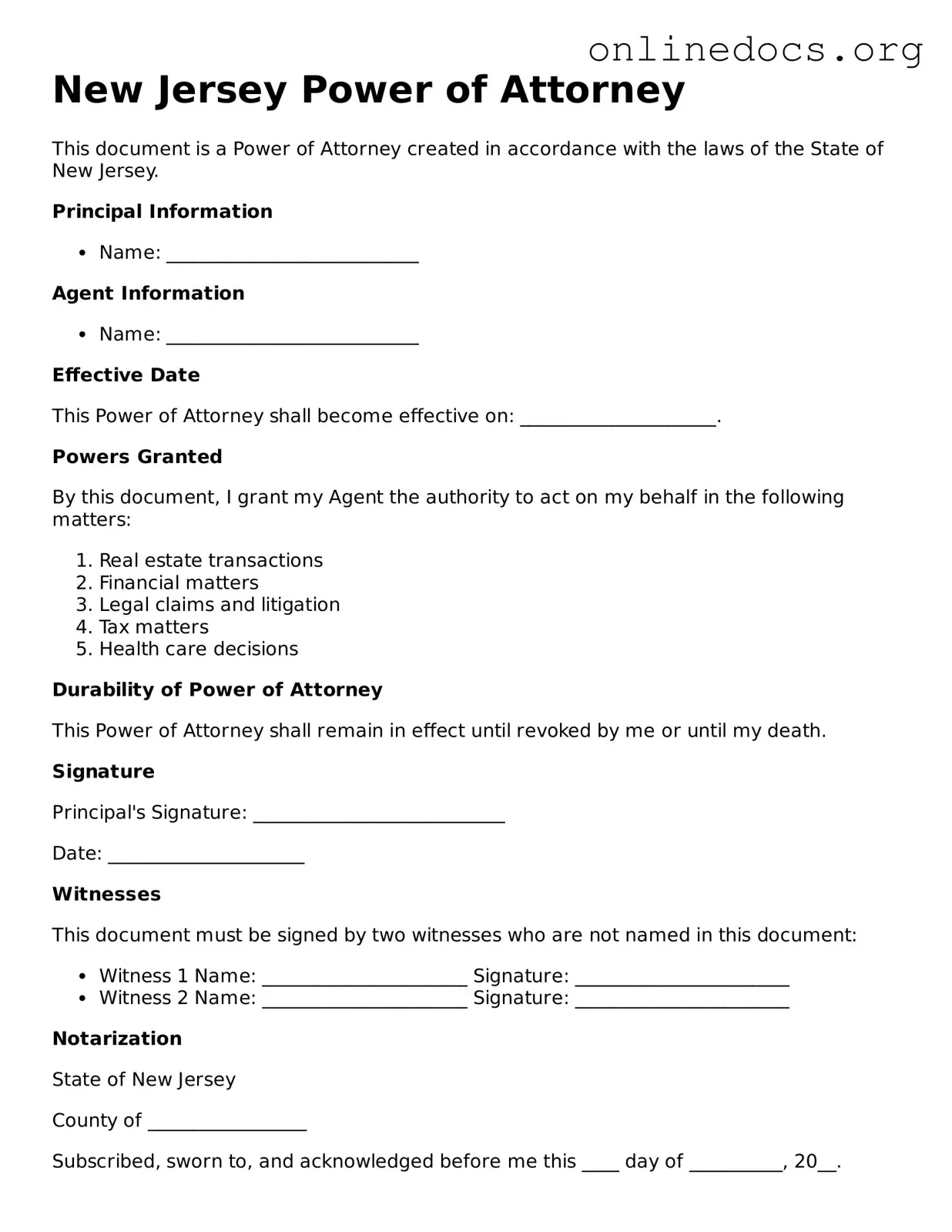The New Jersey Power of Attorney form shares similarities with a Living Will. A Living Will outlines an individual's preferences regarding medical treatment in case they become incapacitated. Both documents serve to express a person's wishes when they cannot communicate them directly. While the Power of Attorney designates an agent to make decisions on behalf of the individual, a Living Will focuses specifically on health care decisions, ensuring that medical personnel adhere to the individual's desires about life-sustaining treatments.
Another document akin to the New Jersey Power of Attorney is the Healthcare Proxy. This document allows a person to appoint someone to make medical decisions on their behalf if they are unable to do so. Like the Power of Attorney, the Healthcare Proxy empowers an agent to act in the individual's best interests. However, the Healthcare Proxy is specifically limited to health care decisions, while the Power of Attorney can cover a broader range of financial and legal matters.
The Advance Directive is also similar to the Power of Attorney. An Advance Directive combines both a Living Will and a Healthcare Proxy. It allows individuals to outline their medical treatment preferences and appoint a healthcare agent. This document ensures that both the individual's wishes regarding treatment and the appointment of a decision-maker are clearly stated. In contrast to the Power of Attorney, which may include financial and legal authority, the Advance Directive focuses solely on healthcare-related decisions.
A Trust document can be compared to the New Jersey Power of Attorney in terms of managing assets. A Trust allows an individual to place their assets under the control of a trustee for the benefit of designated beneficiaries. Like the Power of Attorney, a Trust can facilitate the management of financial matters and ensure that the individual's wishes regarding asset distribution are honored. However, while the Power of Attorney is effective during the individual's lifetime, a Trust can continue to operate after death, managing the distribution of assets according to the individual's instructions.
Understanding the various legal documents related to decision-making authority, such as the Power of Attorney, Living Will, and Trust Agreement, is crucial for effective estate planning. Each document serves a specific purpose, ensuring that your wishes are honored during critical situations. For those in California looking to formalize a vehicle sale, the californiapdfforms.com/vehicle-purchase-agreement-form/ provides an essential framework similar to how these legal instruments help manage personal affairs.
Lastly, the Will bears some resemblance to the New Jersey Power of Attorney. A Will specifies how a person's assets should be distributed after their death and can appoint guardians for minor children. While the Power of Attorney is effective during a person's lifetime and grants authority to manage affairs, a Will takes effect only upon death. Both documents are crucial for planning and ensuring that an individual's wishes are followed, but they serve different purposes and operate at different times in a person's life.
